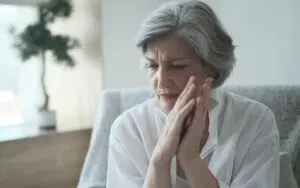Grief Counseling
So much of life involves aspects of grief and loss such as sadness, disappointment, unmet expectations, life changes and more. Yes, grief can be related to death loss, and in addition may include losses in relationships, vocation, identity, physical, and so much more. Grief is the reaction to loss, the engagement with the loss and all of what it brings with it. We don’t do grief well in our Western culture. Having a companion on your grief journey can be especially beneficial.
Although grieving can present in a variety of ways, you may find yourself dealing with:

- Holistic responses including physical, emotional, relational, cognitively, and spiritually.
- Increased irritability
- Emotional dysregulation
- Lack of focus
- Prolonged sadness
- Guilt and/or regret
- Overwhelm
- Avoidance
Can counseling help with my grief?
First, it’s important to remember that grief is a natural and necessary process. The goal isn’t to get rid of the grief; it’s to learn to “become a companion to your grief.” Counseling may help to alleviate some of the presenting struggles that come along with the process of grief. You will also learn that grief is not linear and how to pace between grief and normal, everyday life. Progress looks different for everyone, but a guide can help you determine what that might look like for you.
What does therapy for grief include?

Just as grief is personal and not linear, grief therapy will look different for everyone. The power of an empathic witness is vital in grief, so your therapist will work to hear your story, help you reflect, and determine how you want to move through your grief and any derailers that might be getting in the way. Learning about grief and how it affects all parts of us is also helping in the process. Grief counseling may also help you process the secondary losses that are accompanying your primary loss.
There is hope:
Although aspects of grief and loss may always be with you, you will gain capacity to hold that grief in a way that is honoring and integrative. Ready to see if counseling might be a good next step on your grief journey? Contact us to get connected to a therapist.
